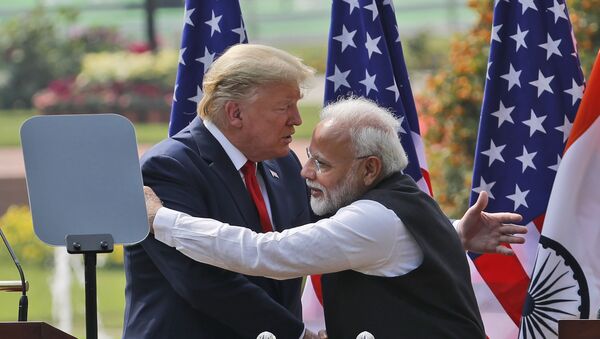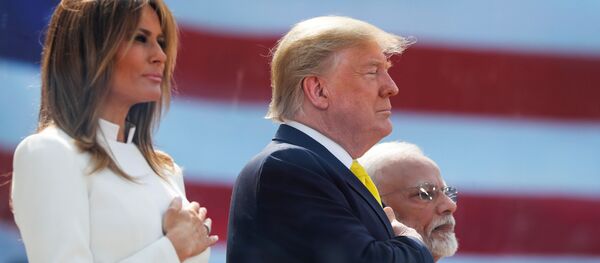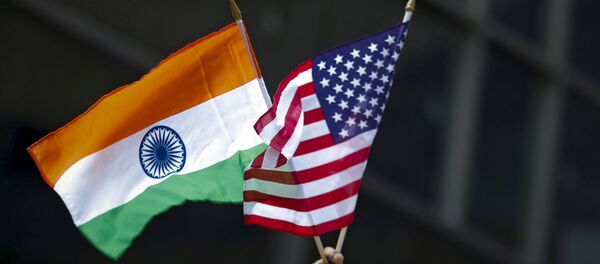US President Donald Trump has won supporters among the Indian-American community by maintaining a studied silence on controversial foreign policy issues such as the abrogation of Article 370 in Kashmir and the Citizenship Amendment Act (CAA), says Niraj Antani, a Republican in Ohio’s House of Representatives.
According to Antani, there is a segment of the community where foreign policy plays a part in deciding voting attitudes.
“The Democrats’ position on abrogation of Article 370 and the CAA has caused a swathe of Indian-Americans to be more supportive of the Republicans.”
In August last year, the Indian Parliament abolished the special status granted under Article 370 of the nation's constitution that constitutionally guaranteed the autonomy of the erstwhile state of Jammu and Kashmir. With the abrogation, the government turned the state into two federally-administered union territories: Jammu and Kashmir, and Ladakh.
The move sparked protests from civil rights groups and some sections of the population in the country, particularly those living in Muslim-dominated Kashmir.
Since the law did not include Muslims, it prompted protests over allegations of discrimination. Many of the Muslims feared the CAA would initiate a long process towards abolishing their Indian citizenship. The Narendra Modi government, however, clarified that the CAA in no way affects people who were born in India, and only deals with people from other countries.
Former CEO of the Democratic National Committee Seema Nanda concurs that President Trump’s “neutrality” on issues such as CAA and Article 370 had polarised the Indian-American community.
“It is hard not to have an opinion about the President,” said Nanda, who is currently a Visiting Fellow at Harvard Law School's Labor & Worklife Program.
Nanda cautions that more Indian-American voters shifting their loyalties to Trump ahead of the presidential vote could swing the outcome in key battleground states and possibly tilt the election outcome.
“There is a need to contact every Indian American voter and conduct a vigorous outreach campaign to bring them solidly behind the Democratic Party,” she added.
“Every vote is going to count in these key battleground states. The conjunction of the Indian American community with other voters could be a tipping factor in these states. The Democrats should be concerned with these survey findings,” said Krishnamoorthi, a Democrat who also serves on the House Intelligence Committee.
The Congressman from Illinois also tried to debunk the ‘narrative’ that a Joe Biden-Kamala Harris ticket would be bad for India.
“Biden is a stalwart friend of India. He shepherded the Indo-US Nuclear Deal when he was the chairman of the House Foreign Affairs Committee,” said Krishnamoorthi.
Antani, Nanda, and Krishnamoorthi were speaking at a panel discussion at the launch of 2020 presidential election voter survey results. The survey was carried out by Indiaspora and AAPI Data.
According to the survey findings, 66 percent of Indian-American population favour Democratic nominee Joe Biden, compared to 28 percent in the community who are likely to vote for Trump.
Vijay Jolly, the former head of the Overseas Friends of the BJP (OFBJP), told Sputnik that Trump’s courting of America’s Hindu voters would help him significantly in the upcoming vote.
“He is a friend of Hindus. His team had released videos specifically targeting the Hindu voters in the Indian American community,” noted Jolly, a former legislator in the Delhi state assembly.
Only 16 percent of Indian-Americans voted for Trump in 2016, while 77 percent had said at the time that they voted for Hillary Clinton.
Nearly 4.16 million of the US population identify themselves as Indian-American, including 1.8 million registered voters.
“The Indian-Americans came out in record numbers to vote in the midterms in 2018. The trend is likely to continue into the 3 November election,” predicted Dr. Karthick Ramakrishna, the founder of AAPI Data.




